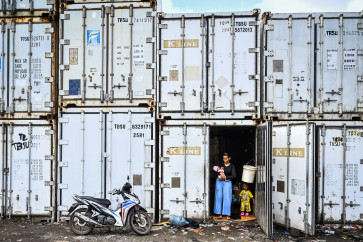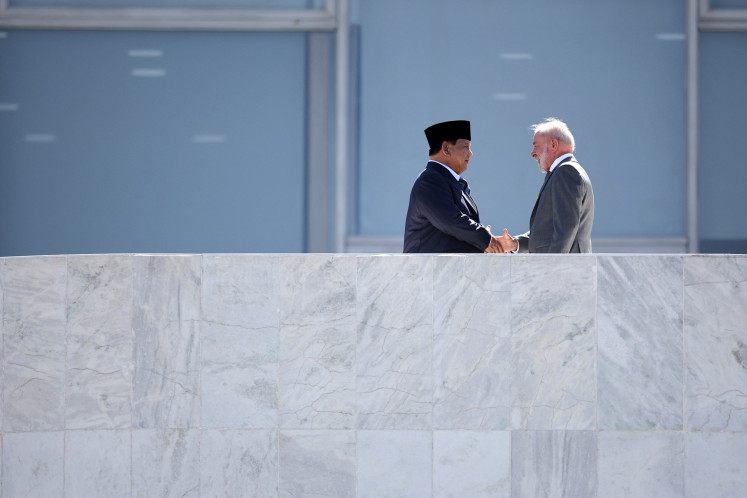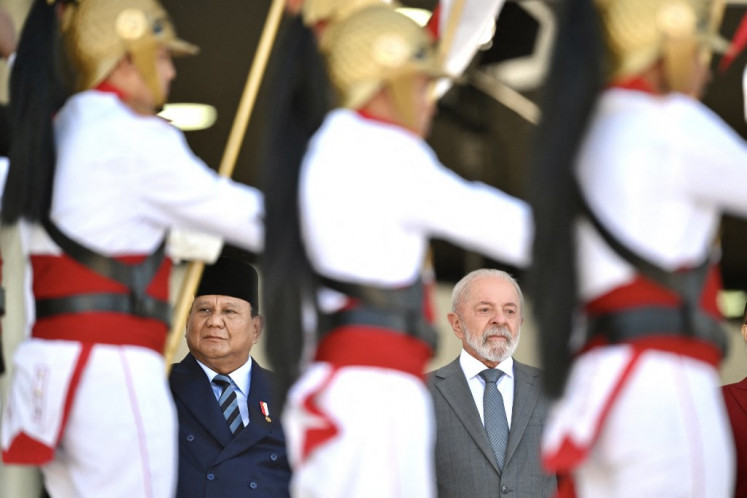Popular Reads
Top Results
Can't find what you're looking for?
View all search resultsPopular Reads
Top Results
Can't find what you're looking for?
View all search resultsAmir Muhammad and Tan Chui Mui: Malaysia’s rebel filmmakers presenting touchy subjects
When writer and filmmaker Amir Muhammad read about a little-known Jewish community that lived in Penang decades ago, it gave him an idea
Change text size
Gift Premium Articles
to Anyone
W
hen writer and filmmaker Amir Muhammad read about a little-known Jewish community that lived in Penang decades ago, it gave him an idea.
He wondered what it would be like to be a Jewish family living there today, and how its members might practice their faith in multiracial Malaysia. What if, he thought, this fictitious Jewish family had an orthodox son who wanted his family members to be more devout, while they preferred to be more “Malaysian”?
He imagined this might have been similar to the kind of pressure Muslim families felt in the 1970s from their children, who were influenced by a rising Islamism.
He decided to make a film. “It will be called Aku Masih Yahudi [I am still a Jew],” he said.
What would the censors think, in a country where Jews are seen as oppressors of Muslims? That does not bother Amir, 38, who hopes to complete the project within a few months.
He makes films, he said, “to amuse myself”. Besides, he already has two films banned by the Home Ministry — The Last Communist and Apa Kabar Orang Kampung (How are the villagers), both about the Malayan communist era.
Amir is one of Malaysia’s more prominent independent filmmakers, but he is no longer a rarity in this field. The industry has boomed in recent years, and many more have joined the ranks.
Independent films — those not made for commercial cinema screening — have flooded Malaysia, thanks to cheaper digital technology. It now takes as little as RM 5,000 (US$1,570) for a do-it-yourself short film, or just RM 100,000 to make a full-length film at industry rates for actors and other production staff.
“You no longer have to be a filmmaker to make films,” said Amir.
Amir, who curates the Malaysian Shorts film festival, said that when the team started out nine years ago, it had to accept every film submitted to fill the two-hour time slot. But with the number of submissions growing by the year, it can now pick and choose. This year, it picked 12 from about 50 received.
It is not just the growing numbers that have livened up the filmmaking scene. Many new films are pushing the boundaries to hold a mirror up to society through fictionalized narratives of Malaysian life. Screen characters now chatter away in vernacular languages when, at one time, only Malay was acceptable. All sorts of people at the margins of society, from sex workers to native groups, are now on film.
The films have also become a way to push messages on politically sensitive issues, such as the controversial Lynas rare earth plant being built in Pahang. The plant is opposed strongly by many Malaysians, who fear it may cause severe radioactive pollution from the waste material that will be stored on site.
Hoping to reach out to the young through humor, four filmmakers released online this week a set of short films on the plant. One of them, Tan Chui Mui, 33, said they wanted to stop the plant, but “we are fighting against people who have power and money”.
“I am from a small fishing village called Sungai Ular. It is only 4 kilometers away from Gebeng [the site of the plant],” she said. “It does not make sense for this plant to be built so near the coast, with a population of 700,000 within 30 kilometers.”
She hopes their short films, collectively called Survival Guide for Kampong Radioaktif, will help create curiosity and discussion.
Her own film, Cinta Lai Kwan (Lai Kwan’s Love), was shot in Bukit Merah, Perak, where a rare earth plant had caused severe environmental and health damage in the 1980s, including cases of leukemia and birth defects.
“I decided to go to Bukit Merah to talk to the victims, and realized that seven of the eight children with leukemia had passed away,” she said.
Films can reach out to all kinds of people, said Anna Har, who organizes the annual Freedom Film Festival for human rights group Komas (Pusat Komunikasi Masyarakat, or People’s Communication Center). “We have had requests for screenings in all kinds of places – villages, community halls,” she said.
The films picked for the festival, now in its eighth year, focus on the themes of justice, peace, equality and democracy. This year, the festival took 20 films on a tour around Malaysia and Singapore. The films explored many issues, including Muslim women wearing the tudung (headscarf), the relocation of native peoples for a new dam in Sarawak and transgender rights.
The film festival has come a long way since its start as Komas’ attempt to use video from the early 1990s to document issues for education and activism. The quality of films is steadily going up, said Har.










